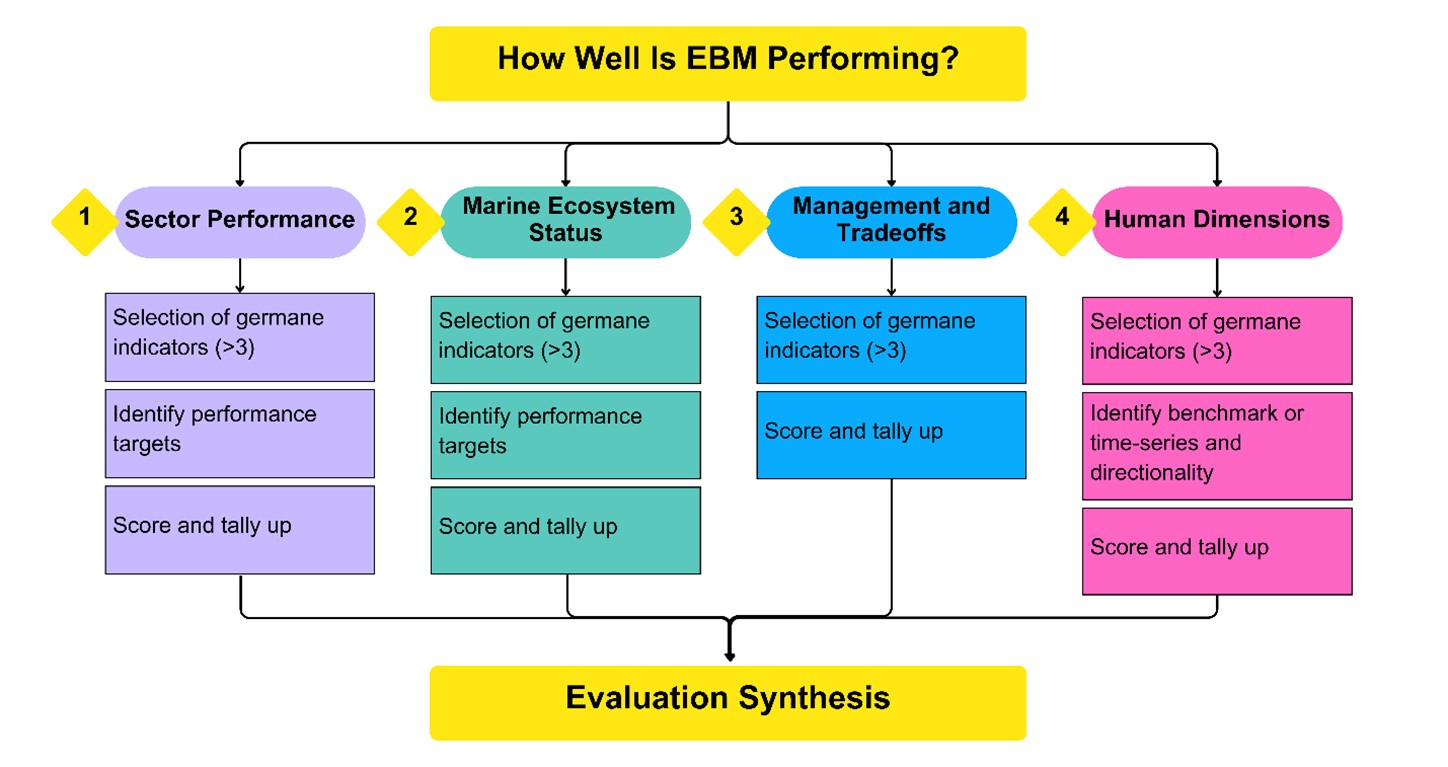Ecosystem-based management (EBM), a holistic approach that aims to balance ecological, economic, and social objectives, has long been recognized as the gold standard for managing marine ecosystems and their users. What sets EBM apart from traditional single-sector management is its recognition of humans as integral parts of the ecosystem and its explicit focus on trade-offs among competing objectives across diverse sectors. Although the adoption of EBM has been slow, it is now being implemented on local, regional, national, and international scales. But how can we determine whether EBM is successful?
Performance measures can play a critical role in evaluating progress toward management objectives, guiding strategy adaptation, and ensuring ecosystem sustainability. While performance measures exist for fisheries, conservation, and business sectors, they often fall short of the cross-sectoral scope required to evaluate social-ecological systems. To fully realize the potential of EBM, performance measures must be expanded to account for its multifaceted nature.
The latest Editor's Choice article in ICES Journal of Marine Science introduces a comprehensive framework to evaluate the success of EBM. Recognizing the limitations of traditional, sector-specific metrics, the framework integrates a wide range of indicators, from sector performance and ecological health to community wellbeing. Drawing on established tools from business and natural resource management, this framework synthesizes indicators across sectors to provide a holistic evaluation of EBM success.
The framework is organized around four key areas: Sector Performance, Marine Ecosystem Status, Management and Tradeoffs, and Human Dimensions. It offers suggested indicators and performance targets while remaining adaptable to case-specific needs. Applying the framework to five case studies revealed important insights: regions with higher Management and Tradeoffs scores tended to exhibit healthier Marine Ecosystem Status, underscoring the critical role of effective governance in maintaining ecosystem health.

What distinguishes this study is the transdisciplinary nature of the framework and its ability to connect clear performance targets to management objectives across sectors. By providing a holistic view of EBM outcomes, this framework enables more informed decision-making that balances ecological, economic, and social goals.
As ocean resources face increasing pressures from expanding and emerging sectors, tools like this performance measures framework are poised to become essential for sustainable management. With its ability to guide adaptive strategies, this framework offers a promising path for achieving sustainable outcomes that maintain ecological integrity while supporting human and economic wellbeing.

